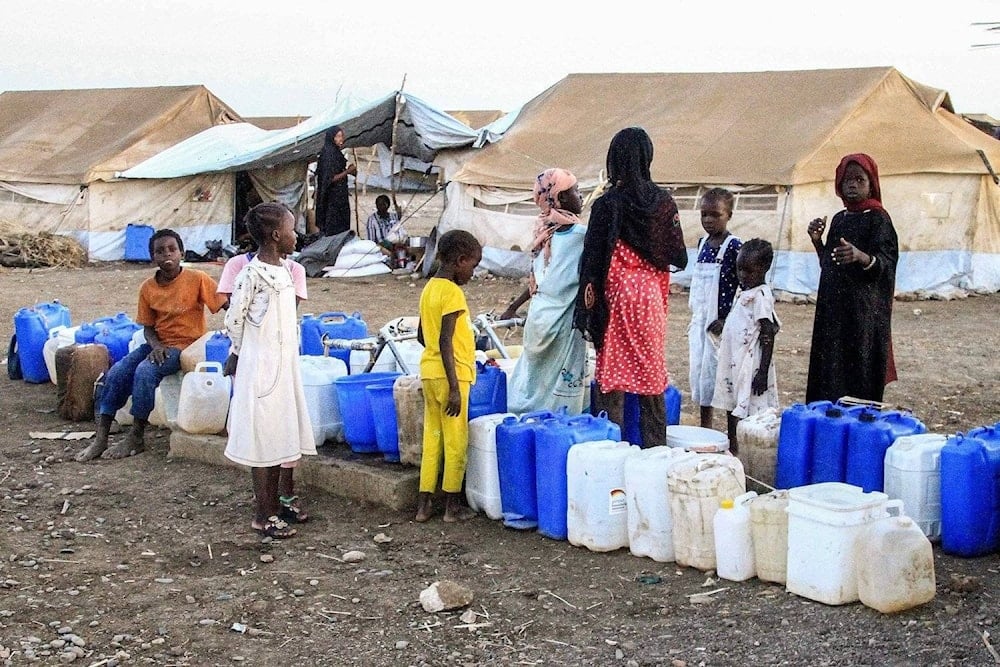Sudan permits opening Adre crossing to allow aid delivery to Darfur
The Transitional Sovereignty Council will open the border crossing with Chad to facilitate humanitarian aid entry to Darfur.
-

Sudanese women and children wait to fill their jerrycans with water during the Holy month of Ramadan at the Huri camp for people displaced by the ongoing conflict in Sudan, south of Gedaref in eastern Sudan, on March 29, 2024 (AFP)
The Transitional Sovereignty Council in Sudan announced on Thursday that it will permit the use of the Adre border crossing with Chad for three months to enable the delivery of aid to the Darfur region, which is now facing an imminent threat of famine, Reuters reported.
Citing international monitoring organizations, the news agency said that over 6 million people are facing food insecurity across Darfur - mostly controlled by the Rapid Support Forces (RSF) - pointing out that "famine has spread in the Zamzam camp in the region's north."
Earlier this year, United Nations experts concluded that the RSF had received arms shipments from the UAE via Chad.
Read more: US pressuring Sudan to join Geneva talks, sets weekend deadline
Relief agencies stated that the ban on using the crossing controlled by the RSF is causing thousands of tons of aid to be stranded in Chad, where heavy rains have flooded the only army-approved crossing to the region, the Tine crossing.
The Deputy Chairman of Sudan Humanitarian Aid Commission, Othman Khojali, said on Thursday that calls for the Security Council to issue a decision to ignore the ban on the Adre crossing are part of a "political agenda" to violate the country's sovereignty and allow "anything" to enter the country.
Khojali blamed the RSF - accused of looting farms, markets, and aid warehouses - for the food shortage. Meanwhile, international organizations reported that half of the country's approximately 50 million people are facing food insecurity.
Last month, the Sudanese Ministry of Foreign Affairs warned against the country sliding into famine, citing the destruction of infrastructure by the RSF and the disruption of the agricultural season in the renowned Gezira Scheme.
Read more: Sudanese farmers face nightmares as RSF steal what they sow
In a statement, the ministry said that, under the supervision of its regional sponsors, the RSF "continues its malicious plan to cause famine in the country, by deliberately and systematically disrupting agricultural activity in food production areas, intimidating farmers, and destroying the infrastructure of the agricultural sector, as well as the looting of agricultural machinery, seeds, and crops of the winter and summer seasons."
The ministry pointed out that "the ultimate goal of the plan is to force people out of their production areas and replace them with militia members and foreign mercenaries."

 3 Min Read
3 Min Read








